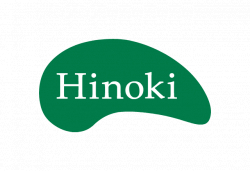お知らせ
COVID-19 Updates
- [登録者]Centers for Disease Control and Prevention
- [言語]日本語
- [TEL]800-232-4636
- [エリア]Atlanta, Georgia, US
- 登録日 : 2024/01/19
- 掲載日 : 2024/01/19
- 変更日 : 2024/01/19
- 総閲覧数 : 200 人
- お店を検索するなら『タウンガイド』
-
- ロサンゼルスで住宅をお探しですか?初めてのマイホーム購入の方、そろそろ住み替えし...

-
ストレスフルな物件探しを少しでもスムーズに、ストレスフリーに!親切・丁寧・素早い対応であなたの物件探しのお手伝いいたします!はじめての物件探しでも安心です。まずは物件探しについてあなたの条件やお悩みをお聞かせください。
+1 (650) 839-3045Nozomi Ogihara / Keller Williams
-
- 七五三、成人式、お宮参り、和装結婚式の家族写真、スタジオ撮影&ロケーション撮影は...

-
着物レンタル、ヘアメイク、写真撮影が1つになったお得なフォトパッケージを各種ご用意しております。全米への出張撮影、出張着付けもお問い合わせください。
+1 (818) 646-8088ワンストップ着物スタジオ KIMONO SK
-
- Orange Countyの人気日本料理です!パーティー・宴会大歓迎!新鮮なお刺...

-
私たちKyoto Japanese Cuisineは若くて才能のあるシェフ、フレンドリーなカスタマーサービス、高級寿司バーのメニューアイテム、多くの日本酒、ビール、ワインのセレクションを備えております。豊富な種類の日本酒とビールを美味しい料理と一緒にどうぞ!また、新鮮なお刺身や豪華な天ぷらもぜひお楽しみください。この他にもかつ丼、カリフォルニアロール等人気メニュー多数ご用意しております。キッズメニ...
+1 (714) 724-7499Kyoto Japanese Cuisine
-
- 贅沢な時間をくつろぎの空間でお楽しみください

-
ヨーロッパ風のインテリアと、心のこもったサービスが貴方に潤いのひとときをご提供いたします。
+1 (310) 787-0000Club Zero Entertainment
-
- 日本語でTMS治療が受けられる精神科クリニックです。うつ病・強迫性障害などこころ...

-
オフィスには日本語の話せるスタッフもおりますので、日本語でお気軽にお問合せくださいませ🍵当クリニックではお薬に頼らない脳と心の治療·TMS(経頭蓋磁気刺激治療)による診療を行っております。強いストレス・不安を感じられている方、気分が落ち込んでどうしようもない方、お一人で悩まずに先ずはDr. Suzuki's オフィスへご相談ください。
+1 (714) 867-7037Americas TMS Center | Dr. Alejandra Suzuki, MD
-
- 🍛安全面に配慮し営業中!🍣🍚やっぱり日本食が食べたい🍚!!そんな皆様へ★トーラン...

-
一丁の自慢フードが食べたい方!是非ご注文をお待ちしております!☎ (310) 325-7273一丁では、お寿司から焼き鳥まで300種類のメニューをどこよりも負けないボリュームと低価格でご奉仕しております。フレンドリーでアットホームな一丁では子供からお年寄りまでお気軽にお立ち寄りいただけます。また、グループでのパーティーなどもご予約承っております。ぜひ一度お越し下さい、満面の笑顔でお待ちして下ります...
+1 (310) 325-7273Iccho
-
- 日本人による早く、やさしく、確実な運転教習。LA郡のサウスベイ地区で、初心者、経...

-
オレンジ郡とロサンゼルス郡領域で、初心者、経験者、未成年者、ペイパードライバー、年配の方、 どなたにも確実な安全ドライバーになるよう親切に指導いたします。日本で免許をお持ちでない方でも丁寧に教えます。
+1 (714) 362-7566Signal Driving School
-
- 本社はアメリカにあるけれど、すべて日本製スキンケア。

-
日本で話題のスキンケアのビーグレン,アメリカでももちろんオンライン購入できます。街かどホットリストにお得なクーポン情報でています!☑大人気マルチビタミン美容液、C serum☑17時間継続保湿が可能な化粧水、Qusome Lotion、☑優しく洗い上げるクレイ洗顔料Clay Washほか、アンチエージングに欠かせない攻めの美容液シリーズ、独自の技術で開発した女性のためのDr. Keller育毛シリ...
+1 (888) 882-2220ビーグレン
-
- LAのセレブが通うネイルサロンで学ぶ、ビギナーからプロまでのトレーニングスクール...

-
MARS THE SALON LAでは、セルフネイルとして、また趣味を嗜む目的で学ぶ方向けから、日本で今現在活躍していて、将来LAでネイリストを目指したいと希望されている方々のために、最適なプログラムを実施しています。LAの高級サロンでネイルの技術が学べる!ライセンス取得・就労ビザが近道となる! LAでプロネイリストを目指すための、サロンワーク体験!日本でネイリストを目指しているまたは、活躍してい...
+1 (323) 433-7216MARS + NAIL & SPA
-
-
+1 (424) 263-5508TK Wine
-
-
- あなたの歯は健康ですか?歯のお悩みはトーランスの歯科医院、ルイス ヤン歯科医院へ...

-
歯の健康は体の健康とつながっています。また美しい歯は、美しい笑顔と自信を与えてくれるでしょう。一緒に歯の健康に向けて取り組みませんか?・ 一般歯科・ 小児歯科・ 義歯(部分入れ歯、総入れ歯)・ 神経治療・ 口腔外科(抜歯、他)・ 歯列矯正・ インプラント・ 審美歯科・ ホワイトニング・ 顎関節症(TMJ)・ 歯周病・歯槽膿漏治療(LANAP)など
+1 (310) 539-9307Louis F. Yang, D.D.S.
-
- 「自分で考え、自分で決断し、自分で行動する」が教育目標です。対面授業(人数制限あ...

-
在外子女教育機関で18年の校長経験を持つ数学のカリスマ教師が、安心して子供を預けられる教室を開校しました。独自の「スパイラル学習法」や日本国内の海外子女専門教育機関との提携で、これまでの実績は早慶の高校受験では合格率100%です。帰国生受け入れ校の情報も豊富で、進学相談には絶対の自信をもっています。補習校は学習指導はもちろん、生活指導を充実させるために毎月「徳育目標」を掲げて人間的にも立派に成長し...
+1 (949) 932-0858ひのき補習校・学習塾Hinoki
-
- ロサンゼルスの都ホテル2階にある本格的な和食レストラン。 厳選素材を使った寿司や...

-
寿司職人が手掛ける握りも色鮮やかで、目でも舌でも楽しめます。さらに、多様な席種もお店の魅力のひとつです。気軽に楽しめるカウンター席やテーブル席のほか、個室の種類も豊富。様々なシーンに利用しやすいお店です。多聞ちらし寿司多聞スペシャルバーガー多聞握りセット
+1 (213) 617-7839Tamon Restaurant
-
- トーランスの歯科医院。日米の歯科医師免許を持ち、20年以上の豊富な治療経験を積ん...

-
新規ご来院の患者さまには、お口と身体の健康についてカウンセリングを行います。Preventive Care 予防歯科Minimally Invasive Dentistry 低侵襲治療Sleep Apnea 睡眠時の無呼吸症候群Cosmetic Care 審美歯科Implants インプラントNatural Dental Care ナチュラルデンタルケア
+1 (310) 618-0808Torrance Dental Care
-
- あなたの笑顔のために、レーザーホワイトニング、レーザー治療(麻酔/注射入らずの虫...

-
ようこそ ! 北村デンタルクリニックでは、良心的かつハイクオリティなデンタルケアーを心がけています。 オフィスでは最新の医療器具 : デジタルレントゲン ( 放射線を90%カット ) 、レイザー治療 ( 麻酔/注射入らずの虫歯治療 )レイザーホワイトニング、最新の詰め物、インヴィザラインなど様々な治療を提供します。
+1 (626) 288-1139北村デンタルクリニック

Received this email from a friend? Sign up now
View this email in your web browserJanuary 19, 2024Amount of Respiratory Illness Is Elevated or Increasing in Most Areas of the Country Respiratory Virus Data Channel Weekly SnapshotThe amount of respiratory illness (fever plus cough or sore throat) causing people to seek healthcare is elevated or increasing across most areas of the country. CDC’s Respiratory Virus Data Channel provides a summary of the key viral respiratory illness findings for COVID-19, flu, and RSV. CDC continues to anticipate this fall and winter respiratory illness season will likely result in a similar number of hospitalizations as last season. Vaccination remains the best way to protect yourself against serious outcomes of COVID-19, flu, and RSV (if eligible for RSV vaccine).
Learn More
Where to Find FREE COVID-19 Testing
CDC’s Increasing Community Access to Testing (ICATT) program will continue to provide no-cost COVID-19 testing for uninsured people who are symptomatic or exposed. More than 19,000 ICATT sites will also offer no-cost COVID-19 vaccines to adults without health insurance and adults without full vaccine insurance coverage. This website helps you find ICATT COVID-19 testing locations and contact information for the providers. You can also visit your state, tribal, local, or territorial health department’s website to find the latest local information on testing.
Learn More
Benefits of Antiviral Treatment for COVID-19 Outweigh Potential Risks of Rebound
If you get sick with COVID-19 and are at higher risk for severe illness, antiviral treatments are available that can reduce your risk of hospitalization and death. But it’s important to get on treatment within 5-7 days after you first develop symptoms.
Rebound, a return of symptoms or a new positive test after having tested negative, has been reported in people with and without the use of COVID-19 antivirals. Current evidence suggests rebound presents as mild symptoms 3-7 days after initial illness resolves. If you are at high risk for severe COVID-19, treatment benefits outweigh the potential risks of rebound.
Learn More
Updated Guidance for Healthcare Providers on Increased Supply of RSV Immunization to Protect Babies
Nirsevimab is an RSV antibody immunization recommended for preventing severe RSV in infants and some young children. Supply of nirsevimab was limited earlier in the season, and CDC provided guidance to healthcare providers on how to prioritize the limited supply. But with recent increases in supply, CDC now advises healthcare providers to return to recommendations put forward by CDC and the Advisory Committee on Immunization Practices (ACIP) on the use of nirsevimab in babies and young children. Infants and children recommended to receive nirsevimab should be immunized as quickly as possible. RSV antibody immunization is recommended for all infants who are younger than 8 months, born during or entering their first RSV season, and some children between 8-19 months who are at increased risk for severe RSV and entering their second RSV season. Most infants whose mothers received an RSV vaccine do not need to also get an RSV antibody.
Learn More
Centers for Disease Control and Prevention
1600 Clifton Rd Atlanta, GA 30329 1-800-CDC-INFO (800-232-4636) TTY: 888-232-6348Questions or Problems | Unsubscribe